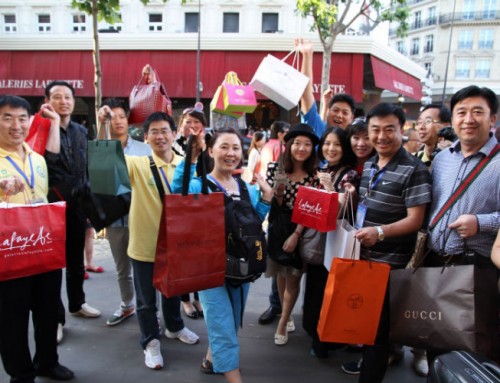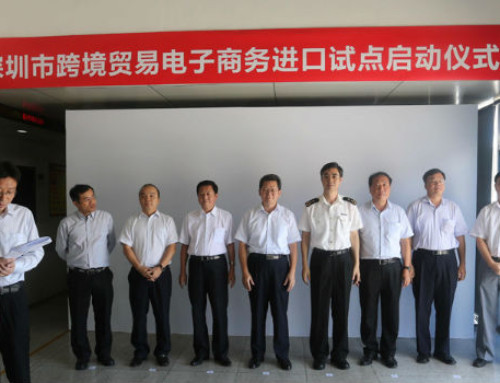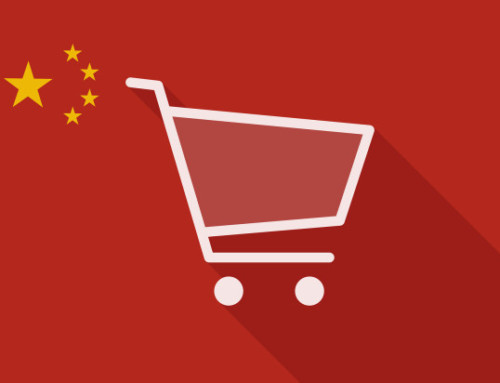China is the world’s second largest economy and a major source of global growth. Economists predict that in the next decade China will overtake the United States and become the world’s largest economy. Rapid urbanisation will see an additional 200 million people added to China’s urban population by 2025. The impact of this urbanisation, when coupled with rising per capita GDP and increasing disposable incomes, will result in changing patterns of domestic consumption.
There are now more than 160 cities with populations over one million, and 14 cities with populations over five million. In addition to tier one cities, there are many tier two, tier three and tier four cities, particularly in Western China, that present real and increasing opportunities for foreign business. Many of these cities maintain double digit GDP growth. Estimates indicate that China’s middle class will exceed 50 percent of the population by 2020. China’s growing middle class together with rapid urbanisation will continue to fuel demand for services such as education, tourism, health care and urban design and planning. Higher disposable income will also lead to increased preferences for safe, clean food and beverages, particularly those high in protein.
However, China is a very complex place to do business. Barriers for exporting product to China still exist for small businesses. Small business owners often lack information about exporting product to China, they have an unclear understanding of how to get started, fear they won’t get paid by customers, and believe that exporting product to China is too costly. The complexity of exporting product to China varies by product and industry, but there are some common tips for exporting product to China.

E-Commerce
China has become the largest e-commerce market in the world, overtaking the USA in 2013. There is an estimated 600 million internet users, and an estimated 350 million online shoppers. According to the Chinese Ministry of Commerce and China E-Commerce Research Centre, online retail sales in China for 2014 reached 2.8 trillion RMB, growth of 49.7 percent compared to 2013 and accounted for around 10 percent of all Chinese retail transactions.
China’s large and growing middle-class have become accustomed to making frequent e-commerce purchases. Furthermore, as in many longer-standing e-commerce markets, they are also developing brand awareness, an increasing proclivity to purchase high quality and/or individually satisfying products, and showing a commitment to brand loyalty and repeat business.
E-commerce is well-suited to smaller scale foreign companies looking to enter the Chinese market without needing to invest in a traditional bricks and mortar presence. It offers the opportunity for a relatively straight-forward, fee-for-service, pathway to Chinese consumers.
While in the western world it is true that all businesses must appear on the first page of Google if they are to be noticed, the same is true in China, except that the dominant search engine here is Baidu. But many foreign companies are nowhere to be found on Baidu, this is due to Google-centric SEO techniques, which do not work on Baidu, foreign businesses need to establish a internet presence in China, as it is unlikely that they already have one. Mandarin pages appended to a English website simply do not register in web searches in China, It must be registered in China with an ICP licence, and hosted within the Chinese governmental firewall.
Tariffs taxes and regulation
China has a compound import tax system. The General Administration of Customs of China publishes an annual tariff schedule including HS codes, import tariff, import value-added tax (VAT) and import consumption tax rates. Import VAT is levied on almost all products, with most subject to a rate of 13 percent or 17 percent. Import consumption taxes ranging from one percent to 40 percent are charged on a number of consumer goods, such as tobacco, liquor, cosmetics, jewellery, automobiles, high-end watches
Over the past 30 years, China has been transformed into a powerful economy with a vast capacity for manufacturing and exporting. Many European manufacturers have felt unable to compete with its ability to churn out a never-ending stream of cheap goods. However, as its wealth has grown, it has increasingly become a destination for export, and many foreign companies are already making significant progress, Smaller niche companies are also establishing market bases in China.
Get to know the market
China has a population in excess of 1.3 billion. It has no fewer than 160 cities, with a population of more than one million. Its industrial and economic progress over the past few decades has been staggering. Towns have become cities, small fishing villages turned into busy urban centres. However, amid this boom there are gaps and niches looking to be filled by savvy entrepreneurs. To find these gaps, businesses should undertake desktop research and follow that up with conversations and communication with bodies such as Jingle Office and other business partners in China.
Get to know the market is essential before entering any new market, but China’s complexity and sheer size make it a unique challenge. Imagine a country as large and diverse as Europe, and you begin to get the picture. The opportunities are too great to ignore, but the risk and price of a failed market entry can be especially high. Jingle Office can help you look at the options available, give you independent guidance, and commission focused research so that you make the right decisions for your business.
Think Chinese
Although the market is huge, there are few fast bucks to be made in China. Businesses that want to succeed typically need to show they are there for the long-term. Entrepreneurs say Chinese businesses are very excited by the prospect of overseas investors and growth in imports. However, they want to deal with western companies on an equal footing, and are looking to build relationships that will mature over time. Forging an alliance with a well-respected and trusted distributor or partner can open doors, and help you to avoid any pitfalls. Some businesses choose instead to open offices and employ native staff, which in itself shows commitment. With either of these options, businesses must choose their partners very carefully.
Resilience
Resilience will be needed if you’re to tackle China well. Building business here in China takes time, and setbacks are to be expected. Despite China having a strong infrastructure and a stable political system, The Economist Intelligent Unit rated China “high” for legal/regulatory risk and “high” for labour market risk in 2015. Both of these can hurt pretty hard in the first couple of years of market entry, as you might be trying to deal with import licenses, an unfamiliar tax system, business registration and remote employees.
You can prepare for these by getting good advice upfront, which will help you to set expectations and budgets wisely. And if you’re planning to register an entity in China, there are some good “toe in the water” options available from Jingle Office.
Relationships are crucial for exporting product to China
Relationships are crucial for Exporting product to China. Take note of this – Chinese prefers to do business with trusted friends, and this important fact has many implications for business strategy. As a simple example, you should budget for senior managers to visit potential partners/clients in China more than once before any significant sales are expected to be made. But that’s just scratching the surface.
You may want to find an agent or distributor – getting the right one(s) for your particular product and target market could be the difference between sales generation and sales frustration. Once again there are many options available. Jingle Office can help you find suitable candidates, build connections and set up quality distributor arrangements.
Tapping all available resources
Once a company has found a market for its product, it can face a mountain of paperwork and procedures before exporting. Fortunately, Jingle Office are in the position to assist with “wading through all those documents.”
It is important to find a good business partner or import agency, who should be well versed in the necessary paperwork & application for approval. Vetting potential buyers and finding trade leads is often easier with the help of a local business expert, who have industry-specific connections and China-specific experiences and expertise, they will help you get in touch with Chinese buyers and distributor, and leading to breakthroughs for your business in China.
Investing time and resources
Between finding the right customer, arranging logistics, dealing with paperwork and fulfilling orders, exporting product to China can take a lot of time. Small businesses just starting to export to China need to have patience. It doesn’t have to be a big expenditure in money but it does have to be a big expenditure in time. Even so, it can be easy to get discouraged.
It will take you a few months to figure out pricing and shipping. You need to figure out how to price your product so you can make money and sell it well, and how to get it over to China and get paid. You have to have a vision for the long term. Hiring a business partner who can bridge the linguistic and cultural divide can be important, and will make a huge difference.
Intellectual Property (IP) & Business Secrets
China is a dominant force in the manufacture of everyday items such as clothing and household appliances. But product manufactured from Europe,U.S, Australia, Japan, South Korea, which are increasingly specialised, niche and often advanced, can find a market in China. However, before businesses begin trading they must also ensure their intellectual property (IP) is protected and choose their business partners in China carefully. Fraud and corruption are still big problems in China, and foreign entrepreneurs attest to the fact that there are those who attempt to steal their business secrets. Foreign businesses need to take legal advice to ensure their patents are valid in China, but also be careful to guard their business secrets as much as possible.
Registration of your Intellectual Property in China should be done as early as possible. China has a “first to file” system, so if someone else registers your trade names or trademarks before you do, they have the legal right to them. Make sure that you get help from an IP law specialist who has good experience in China. Now is also the right time to ask – are our current names and logos suitable for China or not? What should they be? Some English words and names are hard to write and even pronounce in Chinese, or may carry an unintended meaning because of their sound. Jingle Office can help you with these problems, and our local experts will assist you with name choices & logo designs, and many other finer details about exporting product to China.
Related reading: Top 10 Considerations for Exporting to China.












